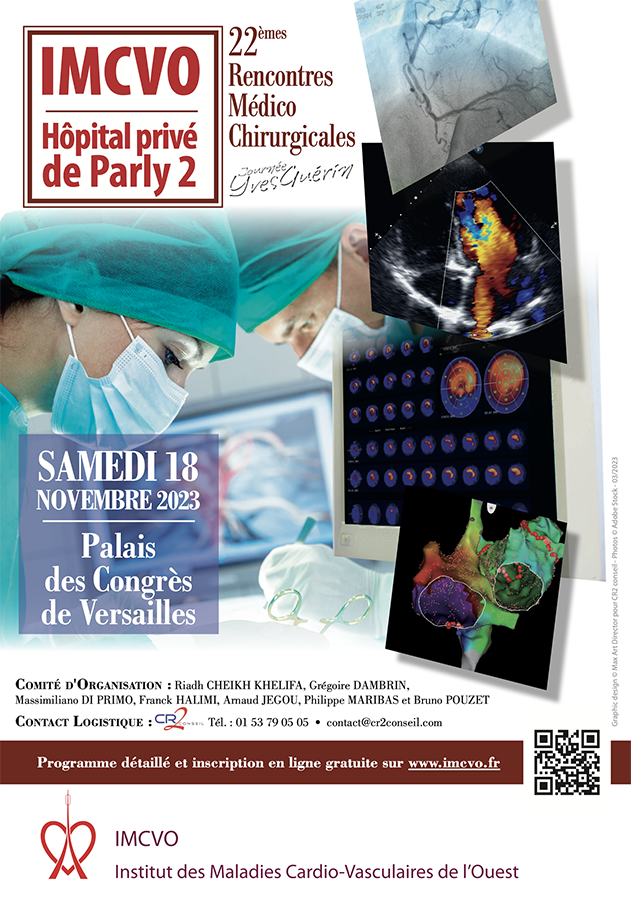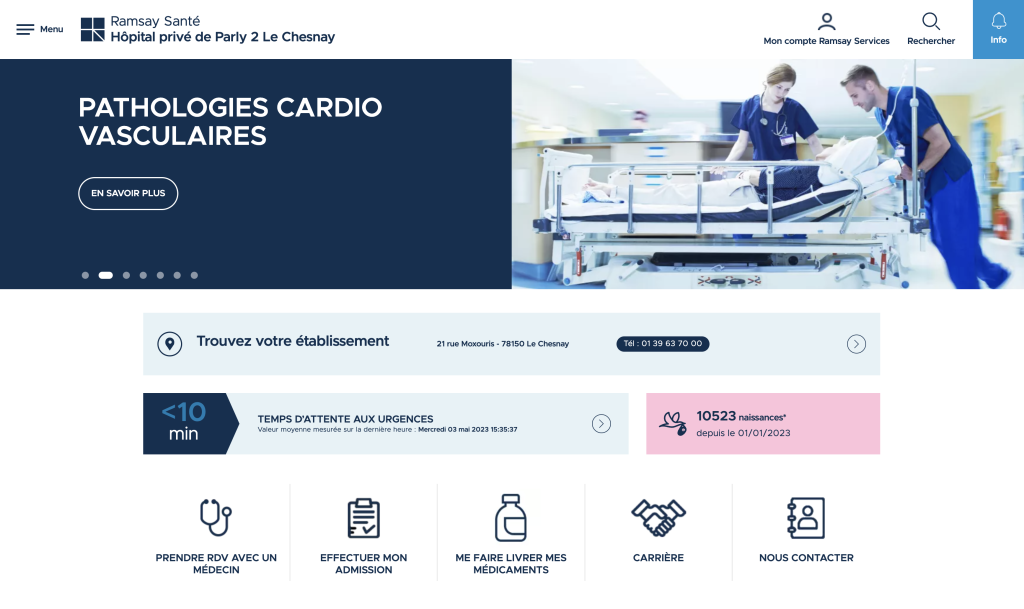L’IMCVO, institut des Maladies Cardio Vasculaires de l’Ouest Parisien, est né en 1999 sous l’impulsion de médecins et de chirurgiens du CMC Parly Grand Chesnay : les Docteurs Olivier Bical (chirurgien cardiaque), Yves Guérin (cardiologue interventionnel), Patrice De Cassin (radiologue interventionnel), Philippe Maribas (cardiologue réanimateur), Jean François Tricot (chirurgien vasculaire) qui voulaient communiquer leurs connaissances dans le domaine cardio vasculaire.
Cet institut a été conçu pour rassembler l’ensemble des compétences dans ce domaine, des médecins et chirurgiens du centre devenu « Hôpital Privé de Parly II » et développer :
- la recherche clinique.
- les registres.
- la formation médicale continue.
- la communication à l’ensemble du corps médical.
L’IMCVO depuis sa création a été à l’origine de nombreuses études cliniques.


